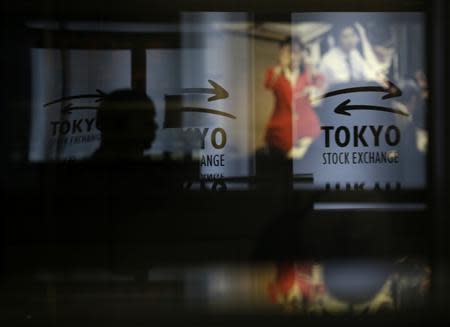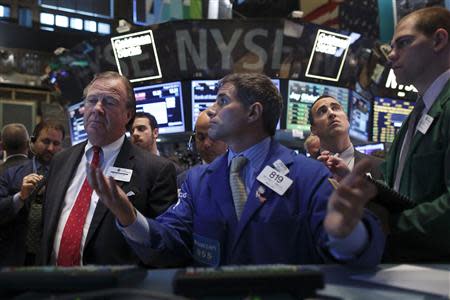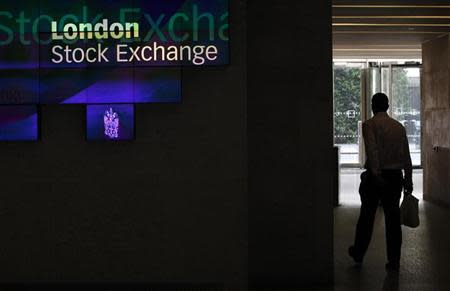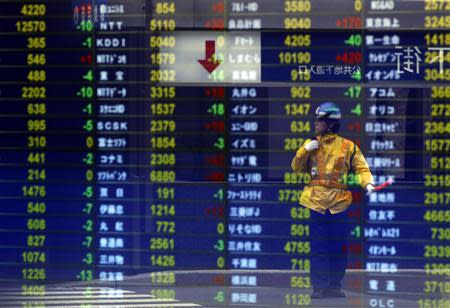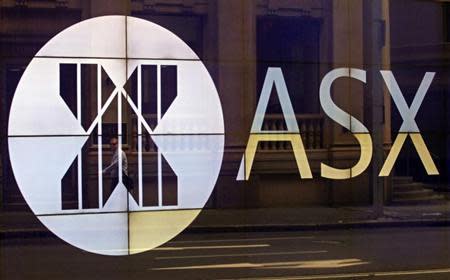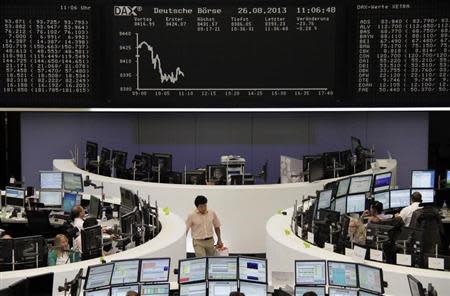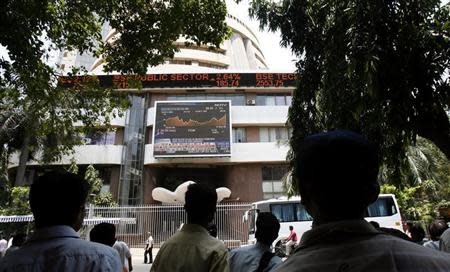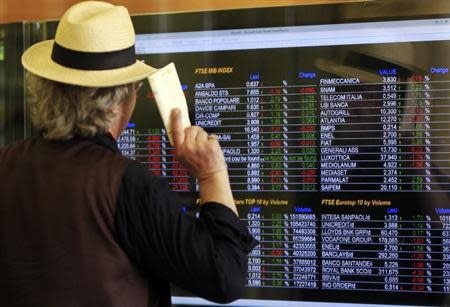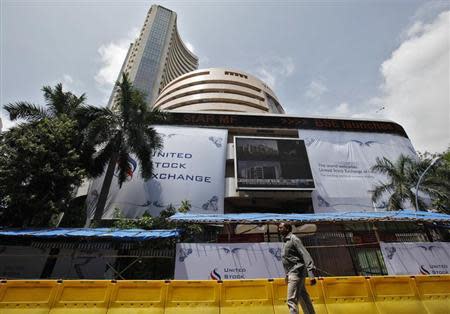U.S. debt deal hopes lift world shares, dollar fades
By Marc Jones LONDON (Reuters) - Firming hopes of a U.S. deal to ensure the country does not default on its debt lifted world shares for a second day on Friday and left the dollar on course for its first weekly rise in five. Republican lawmakers on Thursday offered a plan that would extend the U.S. government's borrowing authority for several weeks, staving off a default that could otherwise come as soon as October 17. While no deal emerged from a meeting with the Democrats at the White House, the two sides appeared ready to end a political crisis that has shuttered much of the U.S. government for over a week and dented Washington's image worldwide. MSCI's world shares index , which tracks stocks in 45 countries, was up almost 0.5 percent by mid-session in Europe as a 0.4 percent rise by European shares followed a rally in Asian and U.S. markets overnight. Stock futures pointed to modest gains of around 0.1 percent on Wall Street when trading resumes with investors expected to be cooler after the S&P 500 on Thursday enjoyed its best day since January. One senior Republican politician said a U.S. deal could be struck as early as Friday and Nick Beecroft, chairman of Saxo Capital Markets, said he expected a short-term agreement which would give 6 weeks of breathing space, by Tuesday at the latest. "I think when we see an agreement on the debt ceiling we will see the high in U.S. Treasury yields drift down due to relief out of that and the stock market will probably do well," Beecroft said, adding there were other implications for financial markets too. "I think it lends even more support to what I am beginning to feel, which is that tapering is not going to happen until March. When the data eventually comes through, it will look so subdued that there will be no way the Fed's hurdles (to start stimulus withdrawal) would have been met by December." That view saw the dollar slip back 0.2 percent against a basket of currencies. However, gains made earlier in the week left it on course for its first weekly rise since early September. German government bonds reversed their morning gains too alongside U.S. Treasuries, as the sense of relief in core debt turned into risk appetite and lifted euro zone periphery debt from Italy to Greece in the process. EURO FIGHTER Just round the corner from the wrangling in the White House, top officials and central bankers from the world's largest economies were meeting at the IMF and World Bank's annual meetings. The meeting's main communique is due out later but U.S. Treasury Secretary Jack Lew and Federal Reserve Chairman Ben Bernanke assured their G20 counterparts at a dinner on Thursday that a U.S. debt resolution would be reached in time. In currency markets, the 'risk-on' mood was clear with traditional safe refuge, the yen, sagging across the board, particularly against higher-yielding currencies such as the Australian dollar. The dollar and euro each rose to 1-1/2 week highs against the Japanese currency and were last at 98.30 yen and 133.23 respectively. Despite some strong comments from European Central Bank head Mario Draghi on Thursday stressing the bank's policy "easing bias", the euro bolted back up to $1.3572 as the Fed tapering questions hit the dollar, and it was stronger against sterling too. Despite the ECB's best efforts, the single currency has muscled higher over recent weeks as signs of recovery in some of the euro zone's most troubled economies have emerged. "At the moment Draghi is talking the talk but not walking the walk," said Jane Foley, a senior FX strategist at Rabobank. "He's got nothing to back it up. Is he going to cut rates? Probably not. Is there going to be another LTRO (long-term refinancing operation) when banks are paying back the current one?" FLUID POLITICS With U.S. data still heavily reduced due to the government shutdown, investor attention focused on the start of the third quarter U.S. earnings season as J.P. Morgan published its results. Commodity markets remained choppy. With the dollar steadier after two days of gains, oil's rebound came to a halt at $111.48 a barrel. Gold firmed at $1,290, though it looked set for its second week of 1.5 percent-plus falls. Struggling also was copper, one of the metals most attuned to global growth. It put on 0.1 percent to $7,153.00 a tonne, but the week's stresses left it heading for its biggest weekly drop in a month. Traders and economists warned that the U.S. fiscal crisis remained delicate and any setback in resolving it could see markets quickly turn tail. "The situation is fluid, but it seems like progress is being made on averting the worst-case scenario. But a short-term solution should be met with short-term enthusiasm," analysts at Nomura wrote in a client note. (Additional reporting by Ian Chua in Sydney; editing by Stephen Nisbet)
